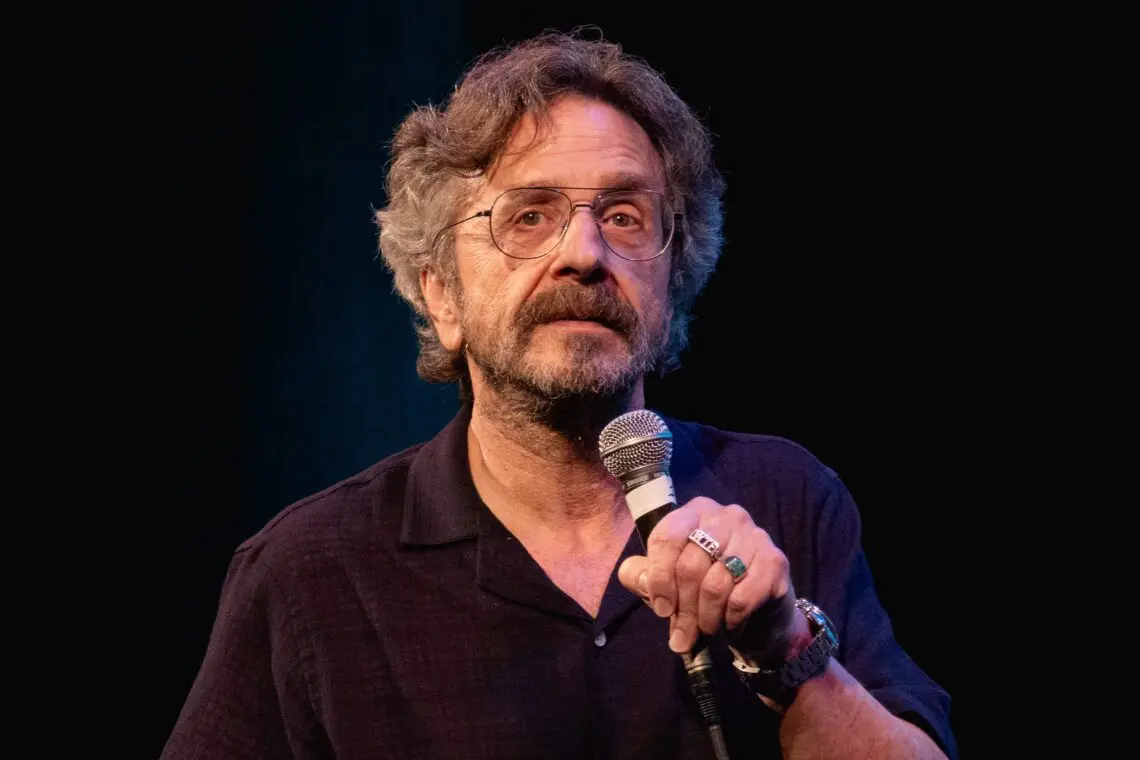Comedians and the troubling rise of fascist rhetoric on podcasts
Maron’s confrontational blog post
Comedians with influence hold significant sway in today’s digital age, but not all are wielding their platforms responsibly. A recent blog post has highlighted concerns about comedians who invite self-proclaimed white supremacists and fascists onto their shows, suggesting that such behavior only serves to normalize and humanize fascism.
“When someone uses their platform for that reason, they are facilitating anti-American sentiment and promoting violent autocracy,” stated the blog, posted on social media. Although the post didn’t name specific individuals, the timing was conspicuous, coming just three days after a prominent podcaster released an episode featuring a controversial guest.
The backdrop of Maron’s perspective
Widely known for his popular podcast, “WTF,” which he’s hosted since 2009, another industry insider has never shied away from sharing his views on the social and political landscape. To him, the current state of affairs represents a looming threat.
“Even though I do not do a political show, my stance has been clear in my specials and podcast. For years, I’ve warned of an American fascist movement brewing, driven by grievance, tech oligarchs, and pervasive propaganda. It’s now shamelessly manifesting in society,” he wrote.
The anti-woke movement and its new face
He continued by emphasizing that the anti-woke flank of this new fascism is significantly propelled by comics. Whether these individuals see themselves as mere comedians or proponents of the movement is irrelevant; their actions contribute to this divisive trend.
“Comedians,” he argued, “are part of the public face of a fascist political movement that seeks to dismantle democratic ideals.”
Aligning for self-serving motives?
This blog post raises pertinent questions about the motivations behind certain influencers and comedians aligning with right-wing movements.
“Fascism is profitable if you stick with the agenda,” was a stark observation made. He further explained how popular podcasts have become tribal and divisive over the years, potentially setting the stage for future media oligarchies under anti-democratic regimes.
A cautious hope for the future
Despite the grim outlook, there remains a glimmer of hope. “Hopefully, the tide turns, allowing tolerance and diversity to thrive,” he wrote. “In these challenging times, it’s crucial to stay true to oneself and resist the cultural onslaught of toxic narratives.”
A deeper dive into comedy’s political landscape
The intersection of comedy and political discourse has always been a complex one. The industry insider’s concerns reflect a broader issue that has simmered for years, where comedians leverage their influence to shape public opinion. Whether intentional or not, these platforms have significant societal impacts.
Historically, comedy has been a vehicle for societal critique. From satirical takes on political figures to humorous reflections on social norms, comedians have always walked the fine line between entertainment and commentary. However, the digital age has amplified their voices, allowing them to reach unprecedented audiences. This amplification comes with greater responsibility, urging those wielding this influence to be mindful of the messages they propagate.
The role of tech oligarchs in content propagation
The blog highlighted the role of tech oligarchs in the current climate. These powerful entities not only control content dissemination but also play a crucial role in shaping the narratives that dominate social platforms. The inundation of propaganda from various sources creates an environment rife with misinformation and ideological bias.
Future of comedy in digital media
As the media landscape continues to evolve, it becomes imperative for consumers to discern the motivations behind the content they consume. The rise of tribalism in podcasting and other media forms signifies a shift towards more polarized content. Audiences are being pushed into echo chambers, reinforcing pre-existing beliefs and further deepening societal divides.
Concluding thoughts
The ongoing dialogue surrounding the role of comedians in political discourse underscores a larger societal issue. It calls for a deeper reflection on the responsibilities that come with influence and the potential consequences of normalizing harmful ideologies.
As the digital world continues to blur the lines between entertainment and propaganda, it’s crucial to maintain vigilance and critical thinking. Reflecting on the warnings shared in the blog post, it becomes clear that the path forward requires a commitment to truth, diversity, and the democratic ideals that underpin our society.
Stay engaged with these crucial discussions by following our updates and sharing your thoughts on social media. Explore more about the evolving landscape of comedy in digital media through our dedicated content.

 Italian
Italian







